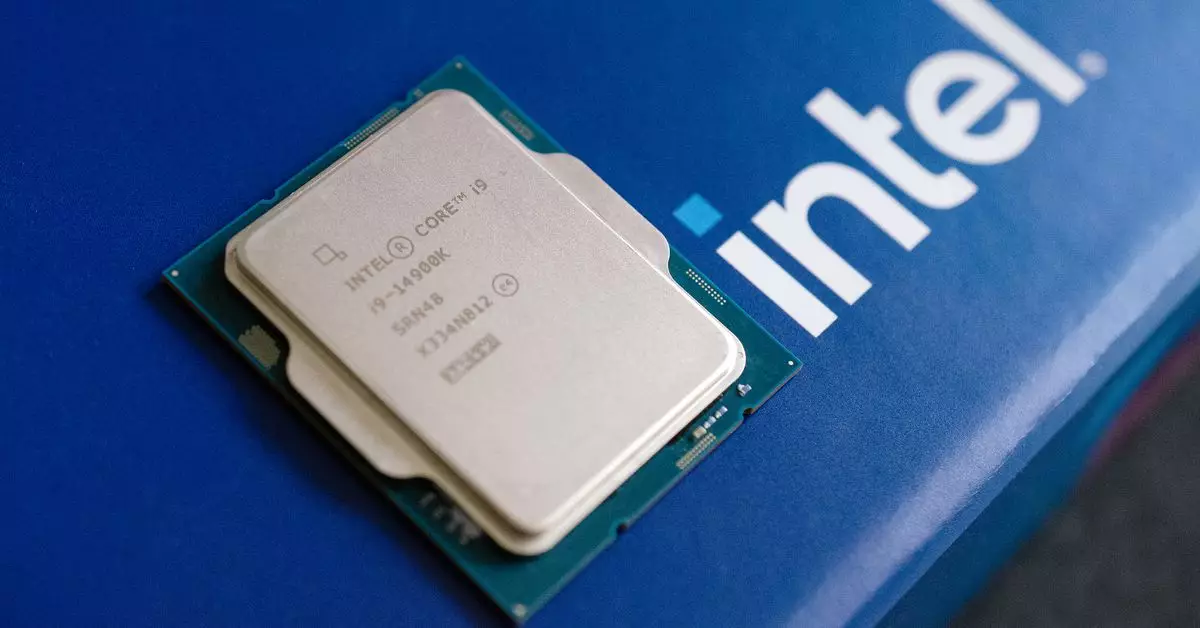The landscape of PC hardware is ever-evolving, yet it often finds itself fraught with complications. Recently, Intel, one of the leading names in the microprocessor industry, has come under scrutiny for reliability issues affecting its 13th and 14th Generation Raptor Lake processors. As users increasingly depend on stable performance for tasks ranging from gaming to productivity, the spotlight on these critical chips has intensified following reports of potential permanent damage associated with their operation.
In a bid to address these stability concerns, Intel has rolled out a new microcode update identified as 0x12B. This update is primarily designed to mitigate the risk of overvoltage when the processors are in idle or low-load scenarios. Overvoltage can lead to premature wear, raising alarms among users about the longevity of their systems. Unfortunately, for those who already face crashing issues, this update may offer little solace; there is no existing fix for malfunctioning chips, leaving affected users in a difficult position.
Moreover, motherboard manufacturers will need time—potentially several weeks—to implement this update into BIOS revisions. While many users may hope for quick resolutions, it is essential they understand that simply waiting for these updates may not be the best course of action. Previous updates already included measures aimed at preventing processor damage and optimizing power settings, suggesting that immediate action might be warranted for those concerned about their hardware’s stability.
Dealing with Existing Issues
For users experiencing immediate instability, the advice from Intel should be clear: avoid BIOS updates if your Raptor Lake chip is already crashing. Instead, contact Intel or your PC vendor for support under the extended warranty provisions that Intel has in place. This recommendation is critical, as those who disregard it may find themselves facing increased frustration should their issues persist unaddressed.
Intel has faced criticism not only for the reliability of its products but also for the transparency of its communications about the problems. The company has not disclosed how many processors have been affected by the mentioned voltage issues or provided clarity on specific batches potentially troubled by previous oxidization concerns. As stakeholders—ranging from consumers to tech enthusiasts—continue to seek answers, Intel’s hesitance to divulge detailed information fosters distrust and concern within the community.
Furthermore, while Intel confidently asserts that its Raptor Lake laptop processors are not impacted by the same voltage issues as their desktop counterparts, recent reports suggest otherwise. This inconsistency raises questions about the thoroughness of Intel’s quality assurance processes and calls into question the overall integrity of its product lines.
While Intel’s latest microcode update represents a crucial step in addressing significant stability issues inherent in Raptor Lake processors, the inadequacy of existing solutions for those already affected cannot be overlooked. As users contend with concerns about performance, potential hardware damage, and a lack of transparency from Intel, it is essential for the company to prioritize both effective solutions and honest communication. The evolving narrative around Intel’s motherboard updates serves as a testament to the complexities of modern computing and the ongoing need for consumer advocacy in the tech industry.


Leave a Reply